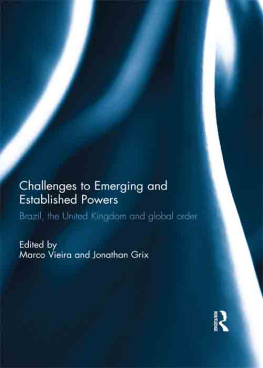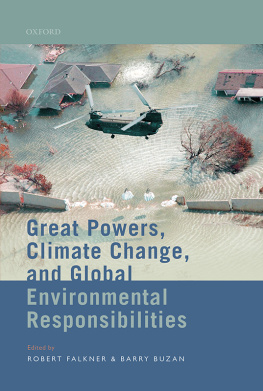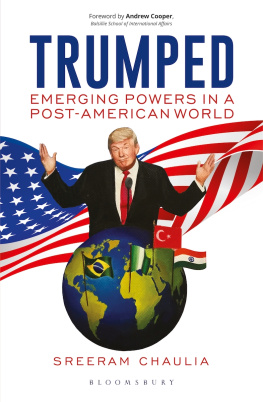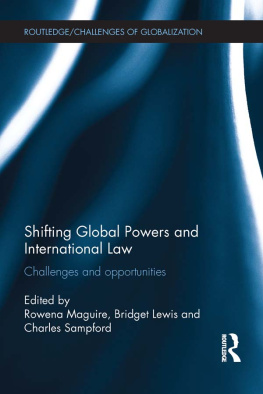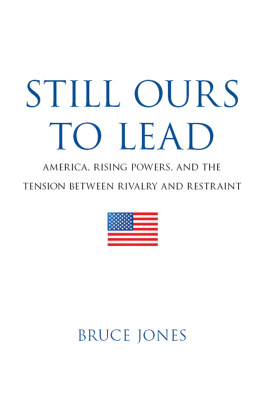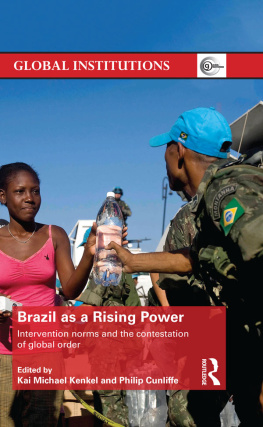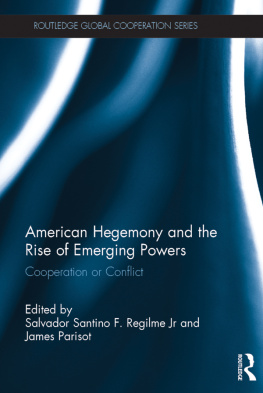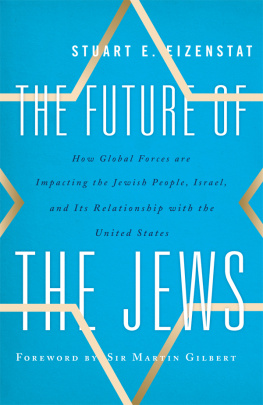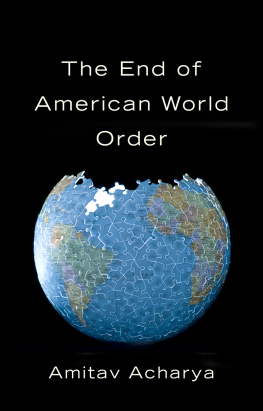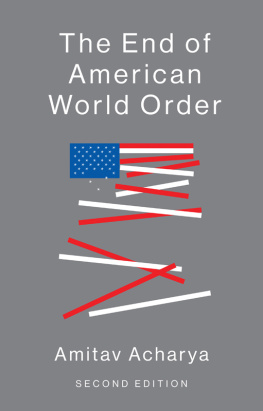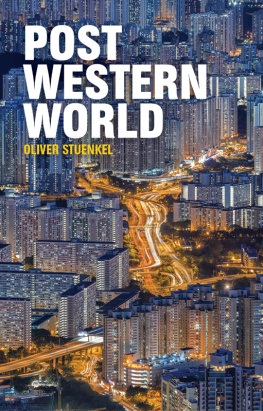Challenges to Emerging and Established Powers
This edited volume explores the analytical possibilities of contrasting Brazil and the United Kingdom as examples of emerging and established powers, respectively. It is organised around several themes focusing on the roles of Brazil and the United Kingdom in the management of global economic governance, international development, international security, the politics of regional integration, global climate change governance, and the political leveraging of sports mega-events. Each chapter explores Brazils and/or the UKs particular foreign policies and their resulting impact on these key areas of global governance and politics. The conceptual focus is on these states motivations as either status-seekers (Brazil) or status-maintainers (UK) in the context of a fast moving international landscape. The chapters in this book directly or indirectly indicate that these states wish to draw attention to their aspiring or established positions as key global players through either visible foreign policy action and/or symbolic rhetoric.
This book was originally published as a special issue of Global Society.
Marco Vieira is a Senior Lecturer in the Department of Political Science and International Studies at the University of Birmingham, UK. He has published in leading journals such as Review of International Studies, Third World Quarterly, Environmental Politics, Foreign Policy Analysis, Global Society, Global Governance, and International Studies Review. He is the co-author of The South in World Politics (2010).
Jonathan Grix is a Reader in Sport Policy and Politics in the School of Sport, Exercise and Rehabilitation Sciences, and Director of the Sport Policy Centre at the University of Birmingham, UK. His latest books include Sport under Communism. Behind the East German Miracle (co-authored with Mike Dennis, 2012), Understanding UK Sport Policy in Context (co-edited with Lesley Phillpots, 2014), and Sport Politics: An Introduction (2015).
First published 2016
by Routledge
2 Park Square, Milton Park, Abingdon, Oxon, OX14 4RN, UK
and by Routledge
711 Third Avenue, New York, NY 10017, USA
Routledge is an imprint of the Taylor & Francis Group, an informa business
2016 University of Kent
All rights reserved. No part of this book may be reprinted or reproduced or utilised in any form or by any electronic, mechanical, or other means, now known or hereafter invented, including photocopying and recording, or in any information storage or retrieval system, without permission in writing from the publishers.
Trademark notice: Product or corporate names may be trademarks or registered trademarks, and are used only for identification and explanation without intent to infringe.
British Library Cataloguing in Publication Data
A catalogue record for this book is available from the British Library
ISBN 13: 978-1-138-19594-3
Typeset in Palatino
by RefineCatch Limited, Bungay, Suffolk
Publishers Note
The publisher accepts responsibility for any inconsistencies that may have arisen during the conversion of this book from journal articles to book chapters, namely the possible inclusion of journal terminology.
Disclaimer
Every effort has been made to contact copyright holders for their permission to reprint material in this book. The publishers would be grateful to hear from any copyright holder who is not here acknowledged and will undertake to rectify any errors or omissions in future editions of this book.
The chapters in this book were originally published in Global Society, volume 29, issue 3 (July 2015). When citing this material, please use the original page numbering for each article, as follows:
Chapter 1
Introduction to the Special Issue: Challenges to Emerging and Established Powers: Brazil and the United Kingdom in the Contemporary Global Order
Marco Vieira and Jonathan Grix
Global Society, volume 29, issue 3 (July 2015), pp. 281285
Chapter 2
Brazils Role in Institutions of Global Economic Governance: The WTO and G20
Mahrukh Doctor
Global Society, volume 29, issue 3 (July 2015), pp. 286300
Chapter 3
Global Economic Governance and the British Economy: From the Gold Standard to the G20
Chris Rogers
Global Society, volume 29, issue 3 (July 2015), pp. 301320
Chapter 4
Organisation and Politics in SouthSouth Cooperation: Brazils Technical Cooperation in Africa
Adriana Erthal Abdenur
Global Society, volume 29, issue 3 (July 2015), pp. 321338
Chapter 5
DFID, the Private Sector and the Re-centring of an Economic Growth Agenda in International Development
Emma Mawdsley
Global Society, volume 29, issue 3 (July 2015), pp. 339358
Chapter 6
Emerging Brazil: The Challenges of Liberal Peace and Global Governance
Monica Hirst
Global Society, volume 29, issue 3 (July 2015), pp. 359372
Chapter 7
Three Emerging Security Challenges for the UK
Page Wilson
Global Society, volume 29, issue 3 (July 2015), pp. 373389
Chapter 8
Regionalism as an Instrument: Assessing Brazils Relations with its Neighbourhood
Elena Lazarou and Bruno Theodoro Luciano
Global Society, volume 29, issue 3 (July 2015), pp. 390408
Chapter 9
Europes British Question: The UKEU Relationship in a Changing Europe and Multipolar World
Tim Oliver
Global Society, volume 29, issue 3 (July 2015), pp. 409426
Chapter 10
Brazilian Energy-Climate Policy and Politics towards Low Carbon Development
Eduardo Viola and Larissa Basso
Global Society, volume 29, issue 3 (July 2015), pp. 427446
Chapter 11
The UK and Emerging Countries in the Climate Regime: Whither Leadership?
Sevasti-Eleni Vezirgiannidou
Global Society, volume 29, issue 3 (July 2015), pp. 447462
Chapter 12
Interrogating States Soft Power Strategies: A Case Study of Sports Mega-Events in Brazil and the UK
Jonathan Grix, Paul Michael Brannagan and Barrie Houlihan
Global Society, volume 29, issue 3 (July 2015), pp. 463479
For any permission-related enquiries please visit:
http://www.tandfonline.com/page/help/permissions

